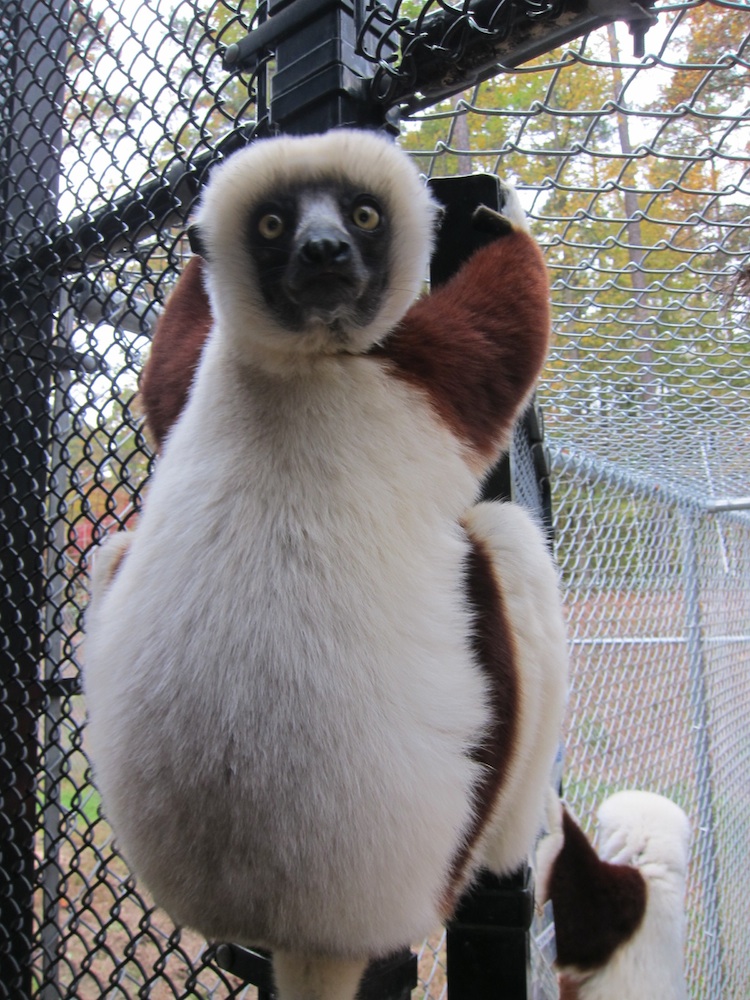Lemur Parents Start to Smell Like Each Other

Maybe you've seen couples who start to look like each other, but lemurs in love actually start to smell alike.
Lemurs mimic their mate's scent-marking habits, and after they've had babies, the primate couples even start to give off similar aromas, new research found. The scientists behind the study think lemurs might sync up their scents to broadcast their relationship status or bolster their territory-marking powers.
The research focused on Coquerel's sifakas, an endangered species, living at the Duke Lemur Center in Durham, N.C., which has the largest population of lemurs outside of Madagascar, the only place on Earth where these primates evolved. [See Lemur Photos from the Duke Center]
Lemurs are known to have a complex system of scent communication, using their individualized blends to advertise information like sex and fertility. Coquerel's sifakas have more than 250 odor compounds in their scents, which they spread by dabbing sticky secretions (from glands on their throats and genital areas) on branches and tree trunks for other members of their group to sniff or lick.
Scientists at Duke swabbed the genital secretions of eight males and seven females throughout different phases of the animals' reproductive season, and monitored the behavior of these potential mates. They found that when sifakas coupled off, they started mirroring the scent-marking behaviors of their partners.
"When one member of a pair started sniffing and scent-marking more often, their mate did too," Lydia Greene, a Duke research associate, said in a statement. And compared with lemur parents, these baby-free couples spent more time spreading their scent and checking out each other's aromas, the researchers found.
"If two animals have never reproduced, the male doesn't necessarily know what the female smells like when she's in heat, because they've never gone through this before," Greene said. "They might need to scent-mark a lot more to figure out when it's time to mate."
Sign up for the Live Science daily newsletter now
Get the world’s most fascinating discoveries delivered straight to your inbox.
Meanwhile, a chemical analysis showed that lemur couples that became parents developed similar scents, perhaps by exchanging microbes during all the physical contact that comes with mating and grooming.
The researchers haven't exactly decoded what the chemical signals in the scents might mean, but they suspect that having similar odors could help couples align their territory defenses and even advertise their bond to the rest of their group.
"It could be a signal that they're a united front," study researcher Christine Drea, of Duke University, said in a statement.
The findings are detailed in the February 2014 edition of Animal Behaviour.
Follow Megan Gannon on Twitter and Google+. Follow us @livescience, Facebook & Google+. Original article on Live Science.










